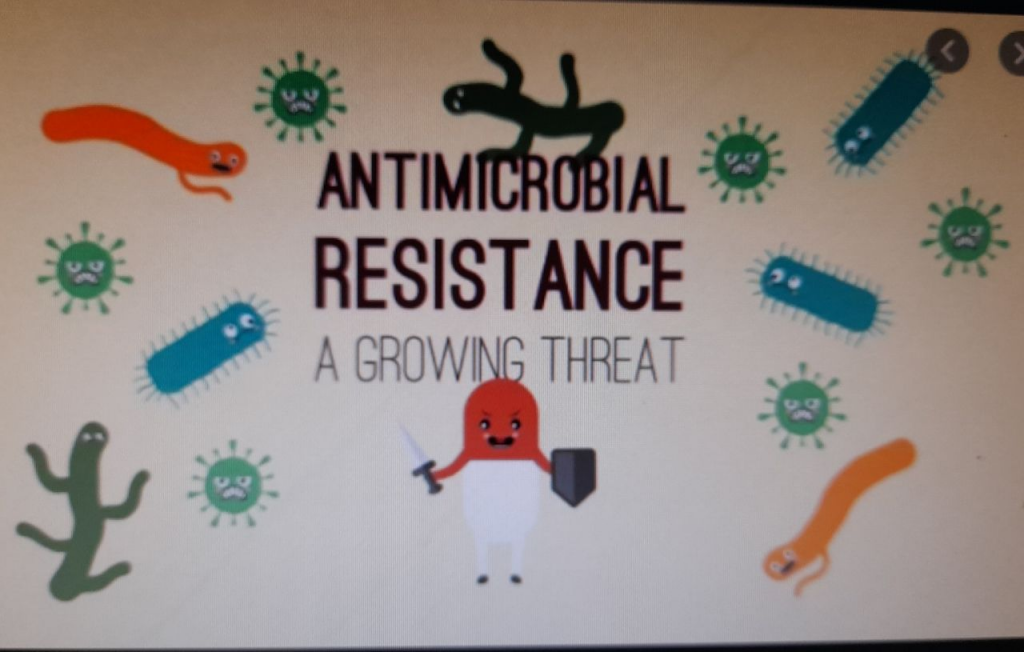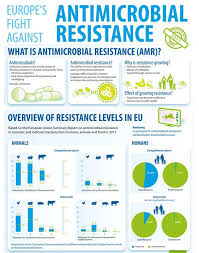CURRENT AFFAIRS
Get the most updated and recent current affair content on Padhaikaro.com
Antimicrobial Resistance ( AMR)
- Vaid's ICS, Lucknow
- 30, Mar 2022

What is the issue?
- Antimicrobial resistance (AMR) is growing in India.
- Consumer awareness is needed on the danger of reckless antibiotic use.

What is AMR?
- Antimicrobial resistance (AMR) is the ability of a microbe to resist the effects of medication previously used to treat them.
- The term includes the more specific “antibiotic resistance“, which applies only to bacteria becoming resistant to antibiotics.
- Resistant microbes are more difficult to treat, requiring alternative medications or higher doses, both of which may be more expensive or more toxic.
- Microbes resistant to multiple antimicrobials are called multidrug resistant (MDR); or sometimes superbugs.
- Due to the rising global concern UN also declared Nov 13-19 as world antibiotic resistance week.
What is AMR related concerns in India?
- India, faces a unique predicament when it comes to restricting the sale of antibiotic as some Indians use too few antibiotics while others use too many.
- About 4,10,000 Indian children who die of pneumonia each year do not get the antibiotics they need.
- While others misuse drugs, buying them without prescription and taking them for viral illnesses like influenza.
What are the instances of failed measures on AMR?
- The tussle between increasing antibiotic use among those who really need them and decreasing misuse among the irresponsible has kept India from imposing blanket bans on the non-prescription sale of these drugs.
- Policymakers made such ban in 2011, it was met with strong opposition, sometimes qualified doctors add to the problem by yielding to pressure from patients or drug-makers.
- Recently India even turned to fine-edged tools such as the Schedule H1, a list of 24 critical antibiotics, whose sale is tightly controlled.
- But even Schedule H1 hasn’t accomplished much, pharmacists often flout rules and drug controllers are unable to monitor them.
- Thus, the power to purchase antibiotics still remains in the hands of the consumer.
Way forward:
- Losing essential antimicrobial drugs would mean that even minor illnesses could become killers, and the cost of health care will soar.
- Tackling the issue requires collective action across multiple focus areas, like cutting the misuse of antibiotics in humans and farm animals, fighting environmental pollution, improving infection control in hospitals, and boosting surveillance.
- While most of these goals need government intervention, individuals have a critical part to play too.
Facts for Prelims:
Black Rock Android Malware:
Recently, a security firm has alerted about a new malware called BlackRock which targets social, communication, and dating apps.
Key Points
- BlackRock is abanking Trojan and said to be an enhanced version of existing Xerxes malware which itself is a variant of the Loki Bot Android trojan.
- A trojanis any type of malicious program disguised as a legitimate one. Often, they are designed to steal sensitive information (login credentials, account numbers, financial information, credit card information, and the like) from users.
- Banking trojans are a specific kind of trojan malware. Once installed onto a client machine, banking trojans use a variety of techniques to create botnets, steal credentials, inject malicious code into browsers, or steal money.
Functioning:
It collects user information by abusing the Accessibility Service of Android and overlaying a fake screen on top of a genuine app.
- It uses Android DPC (Device Policy Controller) to provide access to other permissions.
Minervaria Pantali Frog Species:
(Minervarya Pentali)
Recently a new species of frog has been discovered in the Western Ghats and this species is endemic to the Southern Western Ghats (Kerala and Tamil Nadu).
- This species is one of the smallest known ‘Minervaria’ (species) frogs.
- The new frog species is related to the ‘Dicroglossidae’ family.
- To support and encourage the establishment of the Systematics Lab in the University of Delhi for naming this species, Prof. Named after ‘Deepak Paintal’